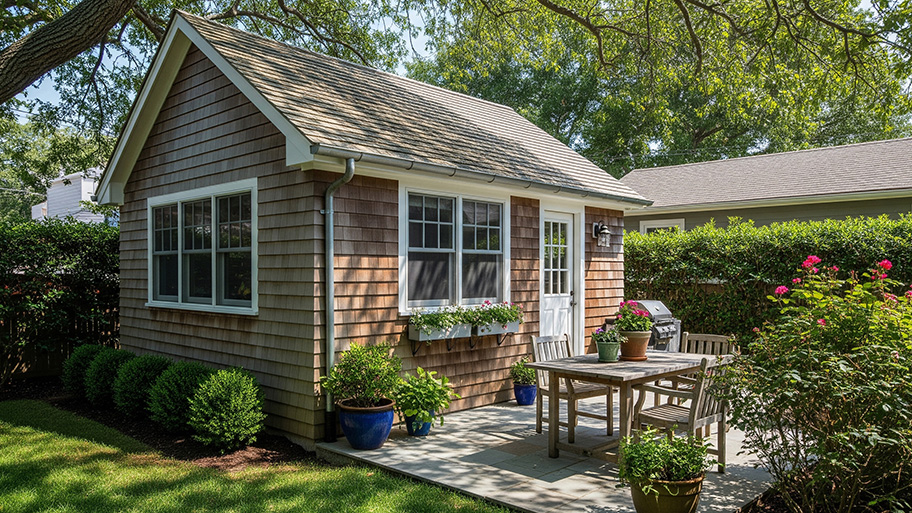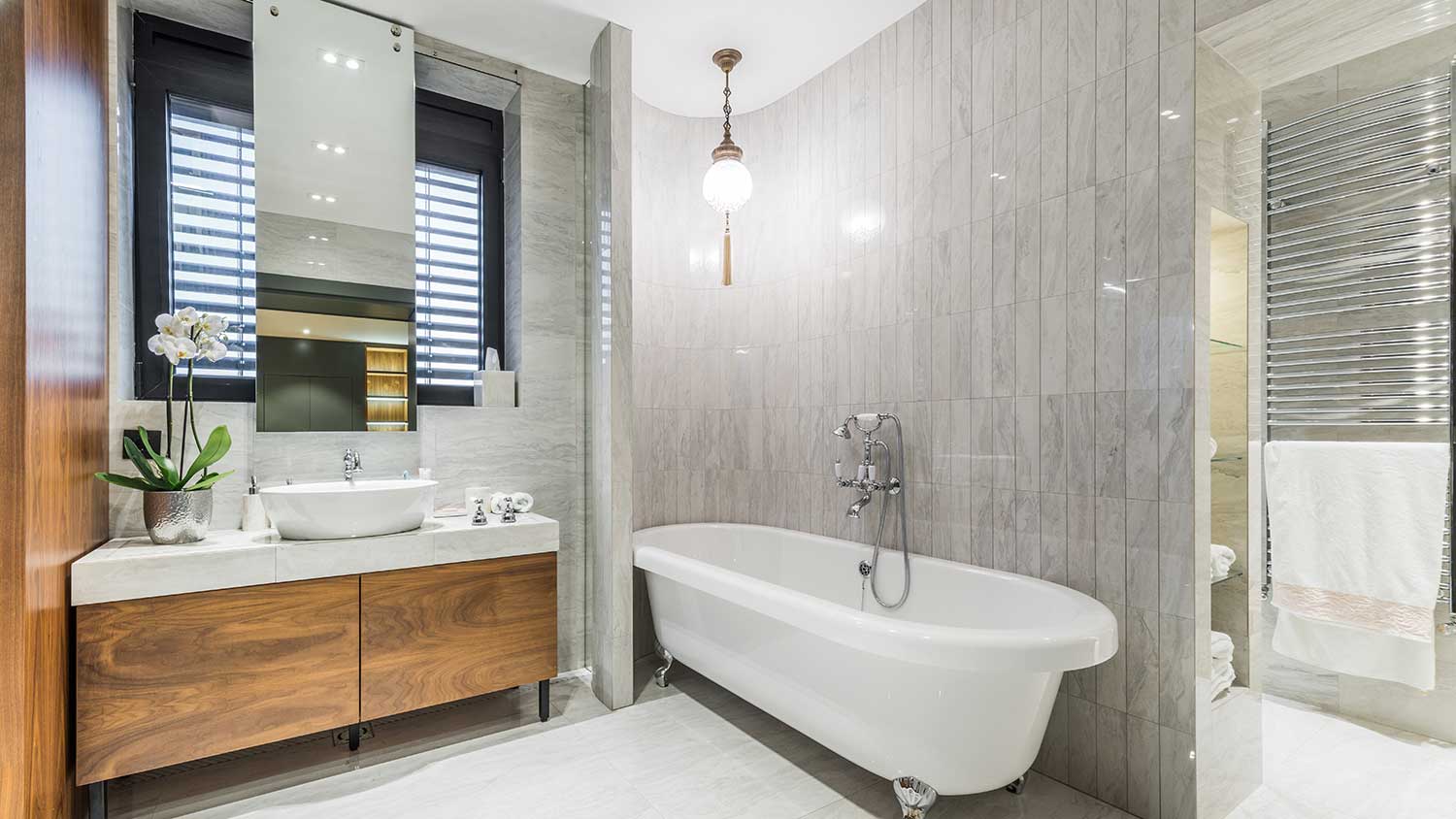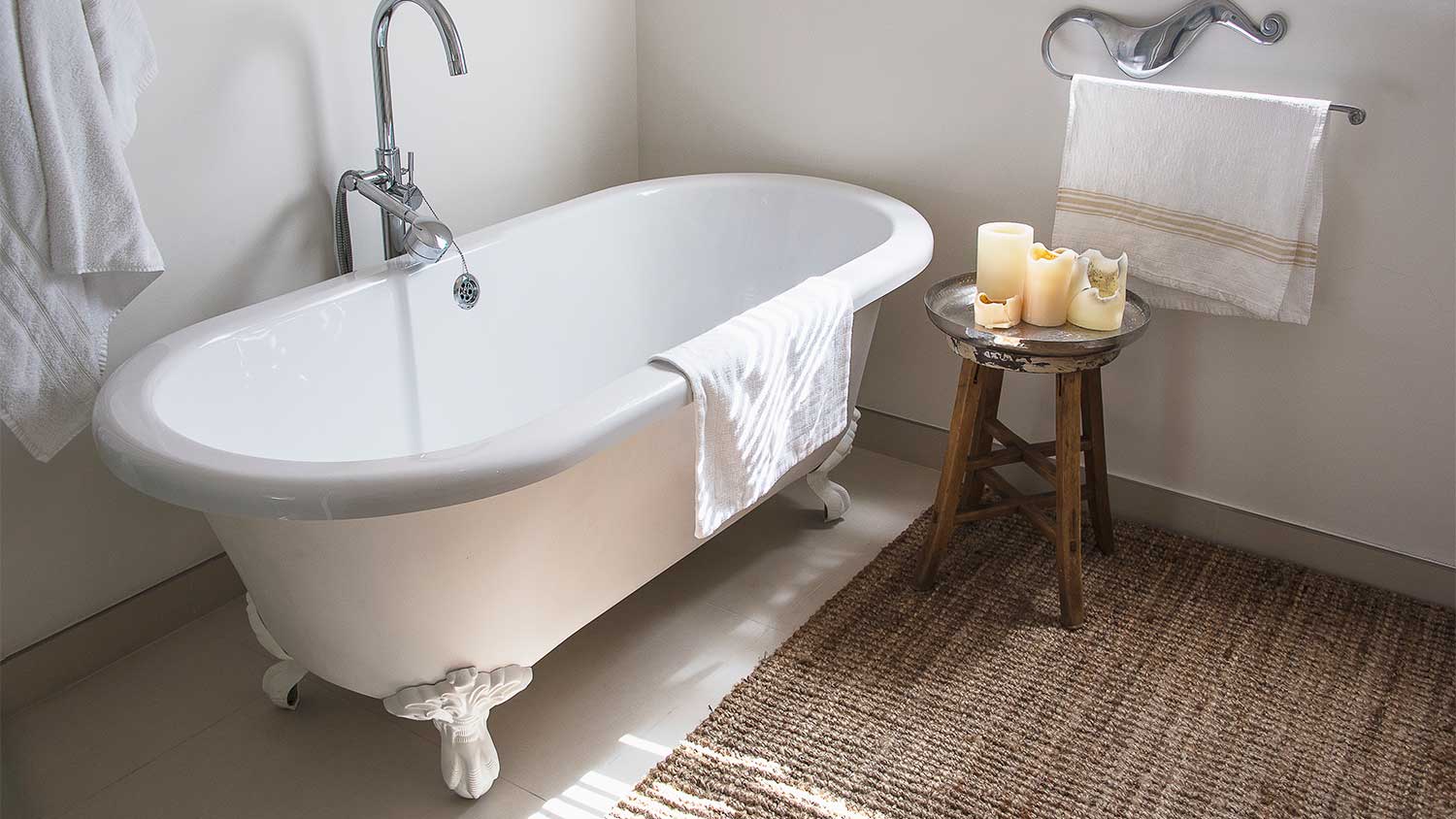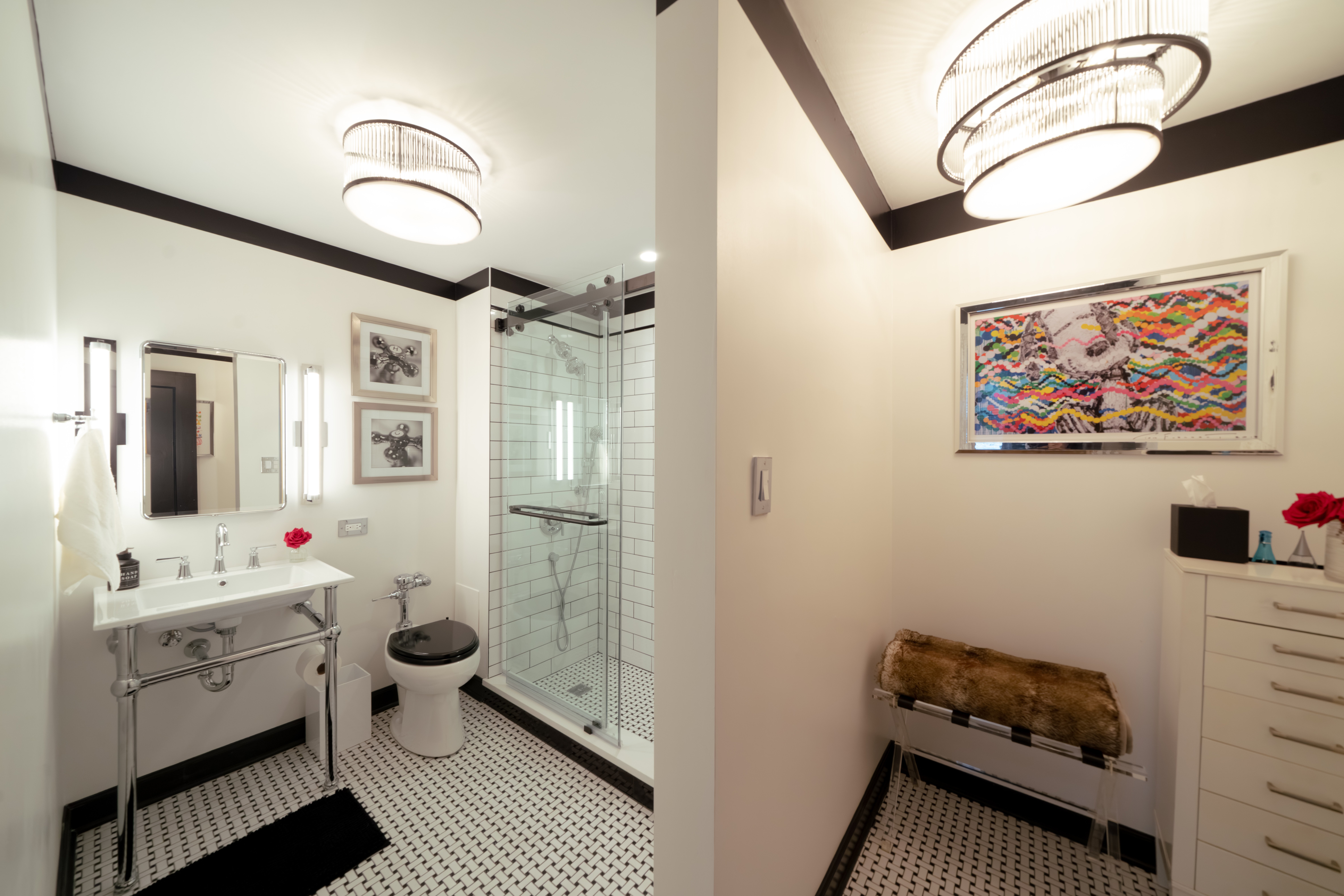
Do you want to add a mudroom to your home but are unsure if it’s within your budget? Use this mudroom addition cost guide to determine your installation price range.
Kitchen and bathroom remodel costs depend on your project and location. Check with a local pro for your specific job.
Add valuable living space and property value to your Kansas City home with a home addition.
Permit fees in Kansas City depend on the total cost of your project and average between $50 and $500.
The cost of a home addition depends primarily on the size and type of the addition as well as the materials you choose.
A qualified Kansas City home builder or general contractor can manage your home addition project to keep you on schedule and within budget.
Building an addition to your Kansas City home is a major investment, and it’s important to budget accurately for this project. The average cost of a home addition in Kansas City is $37,455, with most home addition projects ranging from $17,214 to $60,893.
How much you pay is affected by the size and type of the addition, material costs, site prep, labor costs, and more. We explore some of the factors that determine how much your home addition project will cost.
The cost for a home addition in Kansas City, MO, depends on factors like the size of the addition, the type of room or rooms being added, what materials you choose, permit fees, labor costs, and more. Here’s a detailed breakdown of some of the most common things that affect how much you’ll pay for your home addition.
Home additions cost between $50 and $150 per square foot if you’re building out and between $200 and $400 per square foot if you’re building up. The cost to add a 10x10 room to a house costs an average of $10,000 if you build out and $30,000 if you build up.
Remember that if you add square footage to your home, the cost of your homeowners insurance will increase accordingly. Before you embark on this project, speak to your insurance company about expected costs.
Where in those ranges your total falls also depends on the complexity of the room and its finishes. For example, adding a bathroom will often cost more than a bedroom since it requires additional plumbing and electrical work.
| Project Size (Sq. Ft.) | Bump-Out Build | Second Story Build |
|---|---|---|
| 60 | $3,500–$8,750 | $13,150–$21,900 |
| 80 | $4,675–$11,675 | $17,525–$29,200 |
| 100 | $5,850–$14,600 | $21,900–$36,500 |
| 150 | $8,750–$21,900 | $32,850–$54,750 |
| 200 | $11,675–$29,200 | $43,800–$73,000 |
| 300 | $17,525–$43,800 | $65,700–$190,500 |
| 400 | $23,350–$58,400 | $87,600–$146,000 |
As you can imagine, it takes many kinds of building materials to complete a custom home addition. Material prices vary widely, so your price could push closer to $60,900 if you choose luxury or high-end materials at each step of the way.
| Framing Material | Average Cost per Sq. Ft. | Pros | Cons |
|---|---|---|---|
| Wood | $1–$5 | Cost-effective, easy to install | Fire risk, prone to pests and moisture problems |
| Steel | $2–$4 | Durable, fire-resistant | Complex installation, limits roof design |
| Insulation Material | Average Cost per Sq. Ft. | Pros | Cons |
|---|---|---|---|
| Blown-in | $0.50–$2.30 | Low-cost, fast installation | Prone to water damage, less durable |
| Fiberglass | $0.30–$1.50 | Fire-resistant, cost-effective | Lower R-value, easily damaged |
| Spray foam | $1.50–$4.90 | High R-value, resists pests and moisture | Higher cost, more flammable |
| Rockwool | $1.10–$3.10 | Durable, high R-value | Loose fibers can be a health risk, higher cost |
| Roofing Material | Average Cost per Sq. Ft. | Pros | Cons |
|---|---|---|---|
| Asphalt shingles | $1–$1.20 | Affordable, easy to install | Prone to granule loss, shorter lifespan |
| Metal | $5–$16 | Long lifespan, low-maintenance | Higher cost, difficult to repair |
| Slate | $10–$30 | Longest lifespan, high-end aesthetics | Very heavy, difficult to install/repair |
| Synthetic | $5–$12 | Durable, lightweight | Variable quality, may look engineered |
| Flooring Material | Average Cost per Sq. Ft. | Pros | Cons |
|---|---|---|---|
| Hardwood | $6–$12 | Long-lasting, many available options | Higher cost, prone to dents and scratches |
| Laminate | $1.30–$6 | Budget-friendly, easy to install | Difficult to repair, prone to water damage |
| Tile | $5–$40 | Variety of options, easy to clean | More expensive, complex installation |
| Carpet | $3.50–$11 | Retains warmth, soft to walk on | Difficult to keep clean absorbs odors |
| Siding Material | Average Cost per Sq. Ft. | Pros | Cons |
|---|---|---|---|
| Vinyl | $3–$12 | Budget-friendly, easy to install | Shorter lifespan, prone to impact damage |
| Fiber cement | $5–$14 | Extremely durable, long lifespan | Higher cost, difficult to repair |
| Wood | $2–$6 | Eco-friendly, wide range of styles | Prone to rot and pest damage, high-maintenance |
The cost to add on a room varies based on the type and size of the room you’re building. Rooms like kitchens and bathrooms require plumbing work that a bedroom doesn’t, while an unfinished attic home addition may not require electrical or HVAC work that a bedroom needs.
The cost per square foot for your home addition will vary based on utilities and the finishes required for how you plan on using the extra square footage. Specialty additions like an in-law suite or a sunroom will cost more than a flexible space that can be used for a living room or dining room.
| Addition Type | Average Cost Range |
|---|---|
| Attic | $29,200–$33,575 |
| Bathroom | $25,550–$29,400 |
| Bedroom | $45,625–$52,475 |
| Dining room | $21,900–$25,200 |
| Kitchen | $40,150–$46,175 |
| Laundry room | $5,850–$6,725 |
| Living room | $21,900–$25,200 |
| Mudroom | $8,750–$10,075 |
| Sunroom | $34,300–$39,425 |
| Detached garage | $19,275–$22,200 |
| In-law suite | $60,400–$69,500 |
| Second story | $127,750–$146,725 |
On average, site prep for a home addition costs between $1,500 and $5,000. You may not need any site prep in some cases, while other home addition projects may require grading land, demolishing concrete patios, removing trees, and other work that can add to your total.
Before starting construction on your addition, you’ll need to obtain a permit from the Kansas City Permits Division. Permit fees vary based on the total cost of your project and average between $50 and $500. Your contractor can pull any necessary permits for the project, but be sure to confirm that all permits are in place and you’ve paid all permit fees before beginning construction.
Hiring a home builder in Kansas City, MO, to oversee your new addition will cost an average of 10% to 20% of the total project cost. A qualified local homebuilder or general contractor will manage your addition project from beginning to end, including coordinating subcontractors, dealing with unexpected complications, answering your questions about home additions, and ensuring your addition is built to code.
Depending on the type of addition you’re building, you may need to bring in additional pros to complete the work. From a structural engineer to ensure your plans are structurally solid to plumbers, HVAC techs, and electricians to install utilities, an addition can require as many pros as a new house build—although on a smaller scale. Here are some pros you may need to hire for your home addition project.
Interior painter cost: $2–$6 per sq. ft.
Roofer cost: $4–$11 per sq. ft.
Electrician cost: $50–$100 per hour
HVAC technician cost: $100–$250 per hour
Plumber cost: $45–$200 per hour
Carpenter cost: $75–$125 per hour
Structural engineer cost: $200–$1,500
Landscaper cost: $1,200–$6,200
A home addition can add value to your Kansas City home, with a return on investment (ROI) of 20% to 50% or more. An addition can be a major expenditure, but it can both help you stay in your home longer and add value when it comes time to sell. If you finance your home addition, be sure to consider whether the financing costs make sense compared to the overall value that the addition will provide.
Home is the most important place on earth, which is why Angi has helped more than 150 million homeowners transform their houses into homes they adore. To help homeowners with their next project, Angi provides readers with the most accurate cost data and upholds strict editorial standards. We survey real Angi customers about their project costs to develop the pricing data you see, so you can make the best decisions for you and your home. We pair this data with research from reputable sources, including the U.S. Bureau of Labor Statistics, academic journals, market studies, and interviews with industry experts—all to ensure our prices reflect real-world projects.
Want to help us improve our cost data? Send us a recent project quote to [email protected]. Quotes and personal information will not be shared publicly.
From average costs to expert advice, get all the answers you need to get your job done.

Do you want to add a mudroom to your home but are unsure if it’s within your budget? Use this mudroom addition cost guide to determine your installation price range.

The cost to install a window seat depends on several factors, such as materials, labor, and options. Here’s a breakdown of the cost to install a window seat.

Accessory dwelling units can be a smart investment, but your ADU cost will depend on the size, type, and materials you choose. Here’s how it breaks down.

An updated bathtub can give a bathroom a whole new look. Find out how much it costs to replace a bathtub in Houston, TX, including prices by type and labor costs.

An updated bathtub can give a bathroom a whole new look. Find out how much it costs to replace a bathtub in Seattle, WA, including prices by type and labor costs.

An outdated bathroom is transformed into a vintage-inspired space with basketweave floor tile, a console sink, and subway tile.